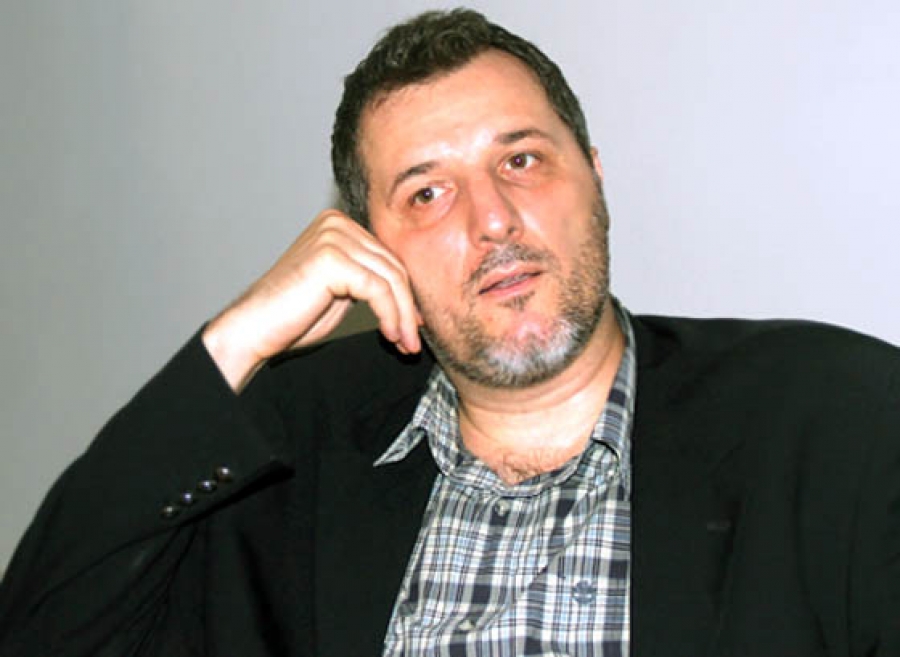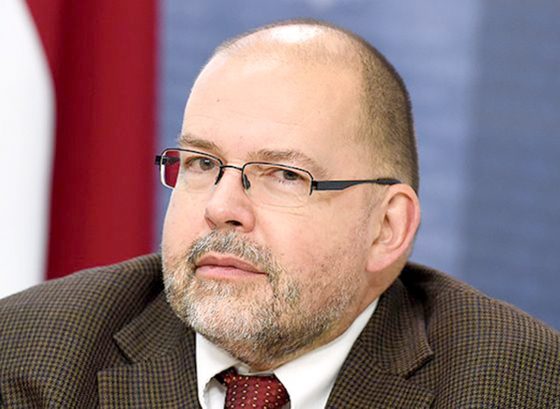Bosnian ambassador to Iran: I wish I had seen Hashemi Rafsanjani in person before leaving Iran

We went to see the Bosnian ambassador to Iran, Emir Hadzikadunic, in his last moments of his mission in Iran, to review his bittersweet memories and Iran-Bosnia bilateral relations.
Upon seeing a picture of the former Bosnian ambassador’s meeting with Hashemi Rafsanjani on Avadiplomatic’s website, Emir Hadzikadunic noted that Hashemi Rafsanjani was the President of the Islamic Republic of Iran during the Bosnian war and that he played a vital role in providing Bosnian people with Iran’s aid. He recalled wistfully that during all those years of his presence in Iran he wished to see Mr Hashemi in person, however, all the efforts made to arrange such a meeting failed.
Avadiplomatic’s exclusive interview with Former Bosnian Ambassador to Tehran Emir Hadzikadunic
Interview by Mohammadreza Nazari
Your mission as the representative of the Bosnian diplomatic apparatus in Tehran has come to an end. With a look at the road covered, what are your most significant achievements?
Our main objective is to promote bilateral relations in economic, scientific, and cultural sectors. Unfortunately however, we have failed in achieving our objectives in economy and commerce. In fact, both Iranian and Bosnian sides are not satisfied with the current situation in Iran-Bosnia trade relations and I think this is a result of sanctions imposed on Iran and the problems it has with the international community.
Both countries, however, have achieved goals in other areas such as cultural exchanges and many Bosnian citizens have participated in Iran’s various festivals and exhibited their works. During these years, the two countries have even held cultural weeks.
Regardless of the impact of sanctions on economic relations between the two countries, senior Bosnian officials try to maintain more harmonious relations with EU. Don’t you think that this attitude adopted by Bosnia and Herzegovina has had an impact on Iran-Bosnia economic relations?
Even before the imposition of the economic sanctions against Iran, economic relations between the two countries were not satisfactory and that’s why bilateral economic relations are limited. And you are right to some extent, because Bosnia’s strategy is to join EU. Therefore, Bosnia has to harmonize its foreign policy with EU. Of course, when they lift international sanctions against Iran, a great opportunity will arise for both countries and I hope for it.
Don’t you think that the adoption of this attitude by Bosnia, I mean being in sync with EU, moves your country economically away from the Islamic countries?
Not necessarily. If you consider Bosnia’s economy, especially investment, you’ll see that lots of investments have been made by Turkey, Qatar, Malaysia, Kuwait and others. Launching the Balkan Al Jazeera Channel in Bosnia and building the tallest shopping mall, in the Middle East, in Sarajevo are just two examples.
Your mission as the representative of Bosnia’s diplomatic apparatus in Tehran coincided with the previous administration in Iran. How do you assess Iran’s foreign policy during Ahmadinejad administration?
I can only talk about Iran-Bosnia relations. As the Bosnian ambassador to Iran, I had very good relations with Iran’s diplomatic apparatus and with other people. However, Iran-Bosnia relations were not Ahmadinejad’s priority under his presidency and other issues were given priority and brought into focus. There is no need to add any comment on other issues which have nothing to do with Bosnia.
Now with President Rouhani in office, do you have any plan to expand Iran-Bosnia bilateral relations?
Mr. Rouhani has just been elected as the president of the Islamic Republic of Iran, so he is quite busy these days, and that’s why ambassadors have not been given an opportunity to meet him yet.
Iranian people know little about Bosnia’s domestic developments. Considering the Peace Treaty of Dayton, how has power structure changed since the Treaty?
According to the Treaty of Dayton, Bosnia has been decentralized and this made all sides, equally, satisfied or dissatisfied. Therefore, peace was established and harmony was achieved in 1995 when all groups accepted peace. According to the constitution, local and parliamentary elections are held. The first turn was made in central government after the Peace Treaty of Dayton. The Council of Presidency has three members: a Bosnian, a Serb and a Croation, and all of them are elected directly by the people. The Council of Presidency runs for a four-year period and every 8 months a member becomes the Council’s rotating president. The Council of Presidency is in charge of foreign policy and homeland defense.
Where were you during the civil war and what did you do then? Did you lose any of your relatives in the war?
I was a college sophomore majoring in geography at Sarajevo. I lost my male maternal cousin, my male paternal cousin, and lots of my friends in different parts of Bosnia in the course of war.
Did you carry and fire a gun during the war?
I was in command of the Yugoslavian Army before the war. I served as a radio operator then. I was in the Bosnian forces during the civil war and though I had a gun, I was just in charge of the radio and I didn’t kill anybody during the war. My sole duty was to convey orders and messages.
Some Iranian citizens entered the war in order to help Bosnian people. How many of them were killed during the war?
Three Iranians were killed. Their bodies were transferred to Iran and every year a memorial ceremony is held ever since as a commemoration of these martyrs.
Every year a memorial ceremony is held on their death sites. I remember that two of them were killed out of Bosnia and in the enemy’s territory and after diplomatic efforts made by the Iranian Embassy in Sarajevo their bodies were transferred to Iran.
How did you undertake further studies after the civil war?
At the outbreak of war, my studies at the college came to a halt but in the aftermath of the war I continued my studies in communication at the University of Malaysia. After Malaysia, I went to Italy to study European studies.
How did you, as a communication graduate, manage to enter Bosnia’s Ministry of Foreign Affairs and become an ambassador?
In Bosnia, 70 per cent of diplomats are full-timers and 30 per cent are part-timers. Ambassadors are selected from among university graduates and businessmen by the Council of Presidency. My appointment as an ambassador is an interesting story which I will tell you briefly.
I came back to Bosnia in the company of a number of Bosnian students in Malaysia, and started an alumni group. As a result of war, Bosnia was in need of human resources; that’s why after returning to Bosnia we went to banks, universities, and companies for work and we gained experience very quickly. The alumni group became influential soon after its foundation.
In a meeting with the Bosnian President, we asked for positions in Bosnian embassies, however, we didn’t hope for our request to be granted. Nevertheless, a couple of weeks later, the President asked for our résumés. In the first round, two out of five were appointed ambassadors. And in the second round, I was appointed and came to Iran as the Bosnian ambassador to Tehran.
What was your opinion regarding Iran and its developments before coming to Tehran as the Bosnian ambassador to Iran?
I had three months’ time to prepare myself for the journey to Iran. I watched movies and read books and magazines. I certainly had some information about Iran in my mind when I came here, but after I arrived in Iran I discovered a whole new planet.
When I was preparing myself as an ambassador to Iran, Iran’s presidential election was held and I watched those scenes on television. I wondered, with all those people on the streets, what I had to expect in Iran. However, when I came here, six months later, everything was normal.
As I mentioned before, I was in Malaysia for four years, but in comparison with Malaysia, Iran is a very special country with deep civilization and historical roots. You have lovely people who like Bosnia. You can swim in Tehran and ski in Tochal. That’s why I fell in love with Iran.
Your wife came to Iran in 1995 to continue her studies. Why didn’t you come with her then?
I didn’t know her when she came to Iran. I was studying in Malaysia then. I made her acquaintance four years later which led to our marriage. After the marriage, I found that plenty of my wife’s photos had been taken in Iran.
Where did you meet your wife for the first time?
When I came back from Malaysia, I met her in Bosnia. I was like all other men in this case. First, she attracts your attention, then you gather information about her, target at her and finally you shoot. If you are lucky enough, you’ll get her; and if not, you have to try once again.
My wife is a civil society activist. When I first met her, she was a member of an organization called “Muslim Youths,” in charge of arranging lectures and editing the organization’s newspaper. When I realized this, I went there repeatedly. I didn’t listen to lecturers since she had totally attracted me (laughs).
What cities have been to so far?
Caspian beaches, Mashhad, Qom, Karaj, Qazvin, Arak, Isfahan, Kish, Qeshm, Ahvaz, Abadan, Chabahar, Hamedan, Shiraz and the Persepolis. Of course, I haven’t been to two big cities of Tabriz and Kerman yet and because of some restrictions I couldn’t travel to Zahedan, so it can be reasonably omitted from my list. The most interesting of all is Isfahan of course.
What were the most memorable days you had as a diplomat in Iran?
Well, picking one from others is a tough choice. All in all, I have pleasant memories from Iran. Nowrooz celebration with Iranians and learning this culture were all good memories.
What was the toughest day you had in Iran?
I can point to the burning days of August in which political challenges appeared in Iran. Of course, there is no need to review them. I just want to recall the positive events.
What was the most difficult report you have ever written about Iran?
Some things are better left unsaid.
What will you do after returning to your country as the Bosnian former ambassador to Iran?
I will return to the University of Sarajevo upon my arrival. It’s possible that after a year I will be appointed to a government post or maybe not. But personally I prefer an academic life.
You have known Iranian people during all these years. What would you like to tell them now that you’re leaving?
Iran is a rich and beautiful country. Iranians who live in other countries miss things in Iran like home and food. Try traveling across this wonderful country, as soon as you can.
Do you mean that Iranians are somehow opportunity-losers?
Yes. That’s right. For example, Iran can turn into one of the main tourist destinations in the world but lots of tourists never see Iran. This is while Turkey attracts two million tourists every year. Have you wondered how many Turks ever come to visit Iran? Good luck!




